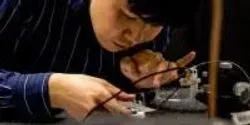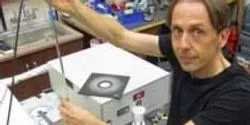electronics

Florida State University’s Center for Advanced Power Systems has unveiled a new 24,000-volt direct current power test system, the most powerful of its kind available at a university research center throughout the world.

An electronic “tongue” could one day sample food and drinks as a quality check before they hit store shelves. Or it could someday monitor water for pollutants or test blood for signs of disease. With an eye toward these applications, scientists are reporting the development of a new, inexpensive and highly sensitive version of such a device in the American Chemical Society journal ACS Applied Materials & Interfaces.

University of Illinois at Chicago researchers have discovered a way to create a highly sensitive chemical sensor based on the crystalline flaws in graphene sheets. The imperfections have unique electronic properties that the researchers were able to exploit to increase sensitivity to absorbed gas molecules by 300 times.















